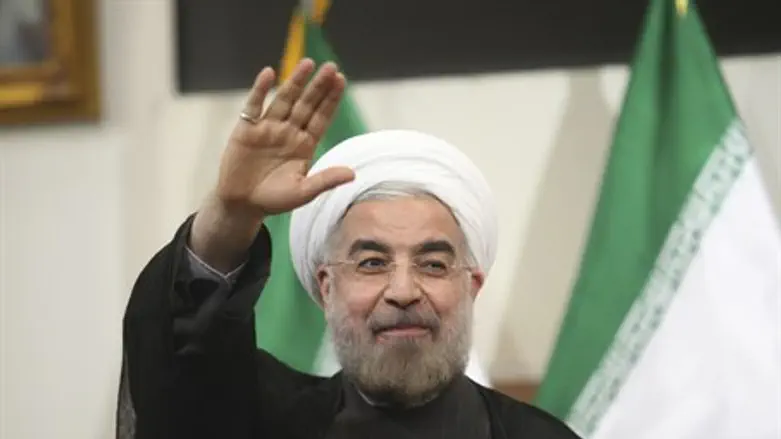
Iranian Nobel Peace laureate Shirin Ebadi said on Tuesday that when it comes to human rights, current President Hassan Rouhani is just as bad as his predecessor, Mahmoud Ahmadinejad, if not worse.
Speaking to The Associated Press (AP), Ebadi urged the UN General Assembly to approve a resolution criticizing the country's abuses.
She pointed out that, under Rouhani, Iran's rights record remains as bad as it was under hard-liner Ahmadinejad and in some cases, it is worse.
Ebadi said the difference is that Ahmadinejad supported severe limitations on human rights while Rouhani has vowed to ease restrictions on freedom of expression and eliminate discrimination against women and minorities.
Rouhani "can't do much" amid stiff resistance from hard-liners in the government, Ebadi said.
"This is why many journalists, many well-known feminists, many students and many members of civil society are in prison now," she told AP.
She pointed to an increase in executions, averaging three a day. While some are criminals, she said, a number are political prisoners and prisoners of conscience.
Ebadi, who won the Nobel Peace Prize in 2003 for her efforts to promote democracy, is campaigning for support for a UN General Assembly resolution that expresses deep concern at the "serious ongoing and recurring human rights violations" in Iran.
The draft resolution criticizes "the alarming high frequency" of the death penalty, including against minors.
Ebadi, the first Iranian and first Muslim woman to win the Nobel Peace Prize, urged the international community and Iran's civil society to keep pressuring the government to improve human rights.
"The world is scared that if Iran put its hand on an atomic bomb that that would threaten the peace of Europe and the rest of the world," Ebadi told AP. "But what we're talking about is ... (that) the people of Iran count as well, the way they are being taken to prison, the way they are being killed."
She said a democratic government in Iran will come up with a better foreign policy, but a non-democratic, closed government, "even if it promises, one cannot count on those promises."
Ebadi’s comments come several days after a United Nations report criticized death sentences in Iran, which regularly executes citizens who are convicted of murder, rape, armed robbery, drug trafficking, adultery and espionage, and detains activists accused of providing material to “anti-government websites”.
The UN report found that Iran has executed 852 people since June of last year, including eight juveniles. According to the UN’s rights rapporteur for Iran, the surge in executions shows that Rouhani has failed to deliver on campaign promises to improve the human rights situation in his country.
Iran responded by claiming that 93 percent of executions in the country involve drug smuggling.
Several months ago, United Nations Secretary-General Ban Ki-moon said that Rouhani had failed to fulfill his campaign promises to allow greater freedom of expression.